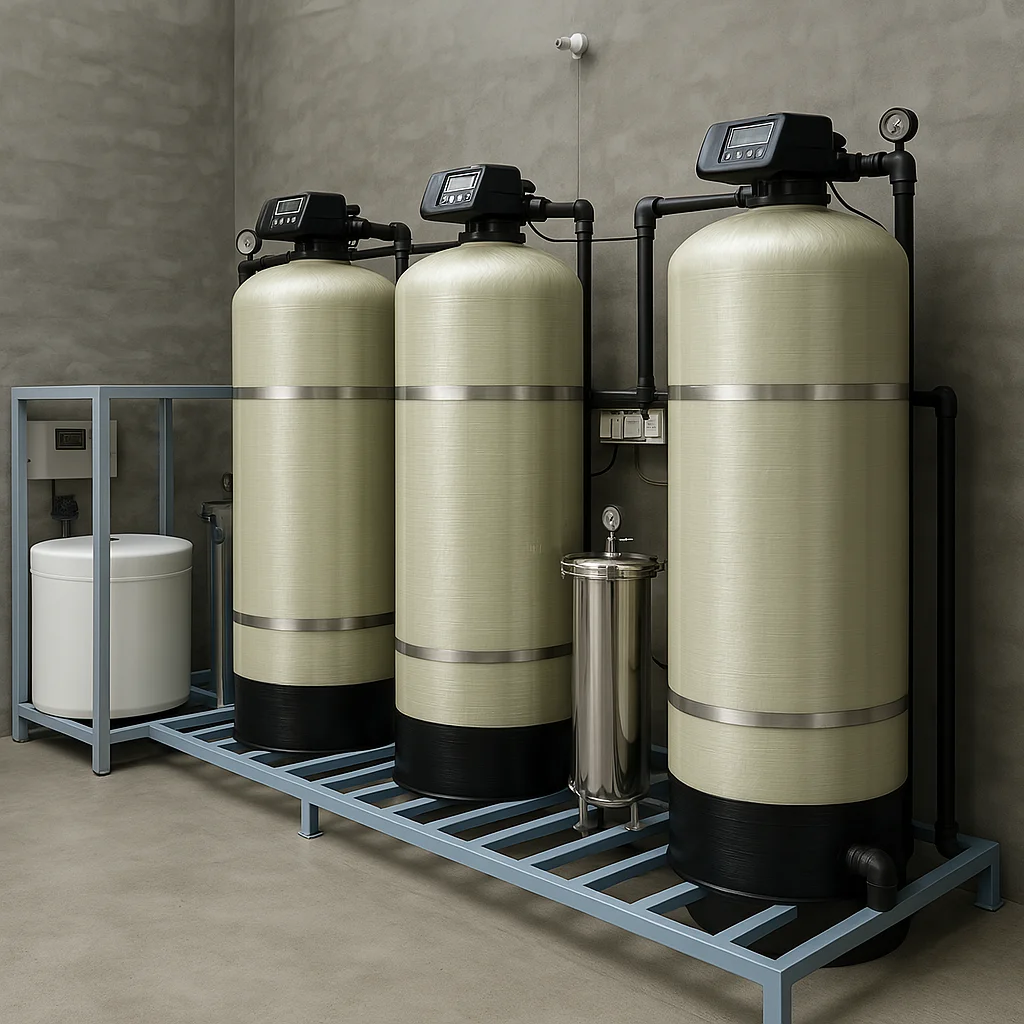
Water Filtration Plant
Efficient Solid Removal Through Filtration
Water filtration plants offer a simple yet effective solution for removing solid debris from water. Depending on the application, the process may involve purely physical filtration or an integrated approach combining physical, biological, and chemical treatments.
Scalable & Customized Water Filtration Solutions
We offer customized water filtration solutions, ranging from compact units to large-scale systems with capacities from 250 liters per hour to 100 cubic meters per hour. Our advanced filtration plants effectively remove suspended particles and contaminants, ensuring a safe, clean, and reliable water supply for residential, commercial, and industrial applications.
In this era the Water Filtration Plant and Cooling Tower Water Treatment is the best choice for us. People also use Water Disinfection System for treatment water.
Tailored Water Filtration Solutions
Water Care Services designs and builds customized water filtration plants to meet the specific needs of each client. These systems are engineered to:
Effectively reduce turbidity and suspended solids
Remove larger physical impurities
Operate efficiently with a compact, easy-to-install design
Improve the overall quality and safety of drinking water
Upgrade Your Filtration System—Get Professional Guidance Now
A Water Filtration Plant is a facility designed to purify water by removing impurities, contaminants, and particles through various filtration processes, ensuring the delivery of safe and clean drinking water.
Water Filtration Plants utilize multiple filtration methods such as sedimentation, coagulation, flocculation, and various filtration media (sand, activated carbon, membranes) to separate impurities from water, resulting in purified water ready for distribution.
Water Filtration Plants can effectively remove a wide range of contaminants, including sediments, bacteria, viruses, algae, organic matter, and chemicals, ensuring that the water meets regulatory standards for safe consumption.
Yes, there are various types of Water Filtration Plants, each employing different technologies and processes. Common types include rapid sand filtration, slow sand filtration, activated carbon filtration, and membrane filtration (like ultra-filtration and reverse osmosis).
Water filtration is necessary to improve water quality by removing impurities that can pose health risks. It ensures that water supplied to communities is safe, clean, and meets established standards for drinking water.
Maintenance involves regular monitoring of equipment, cleaning and replacing filtration media, and ensuring that all processes are functioning correctly. Proper maintenance is crucial for the consistent and reliable operation of Water Filtration Plants.
Water Filtration Plants are versatile and can be designed to treat water from various sources, including rivers, lakes, groundwater, and even wastewater. The specific treatment process may vary depending on the source water quality.
Water Filtration Plants often use disinfection methods, such as chlorination or UV irradiation, to kill or inactivate microorganisms that may pass through the filtration process, ensuring the production of microbiologically safe water.
Coagulation involves adding chemicals to water to neutralize charges on suspended particles, allowing them to stick together. Flocculation promotes the formation of larger particles (flocs), aiding in their removal during subsequent filtration stages.
Water Filtration Plants can be designed with environmentally friendly practices, such as optimizing energy usage, minimizing chemical additives, and incorporating sustainable filtration technologies. Adhering to eco-friendly practices is increasingly prioritized in modern plant design.
